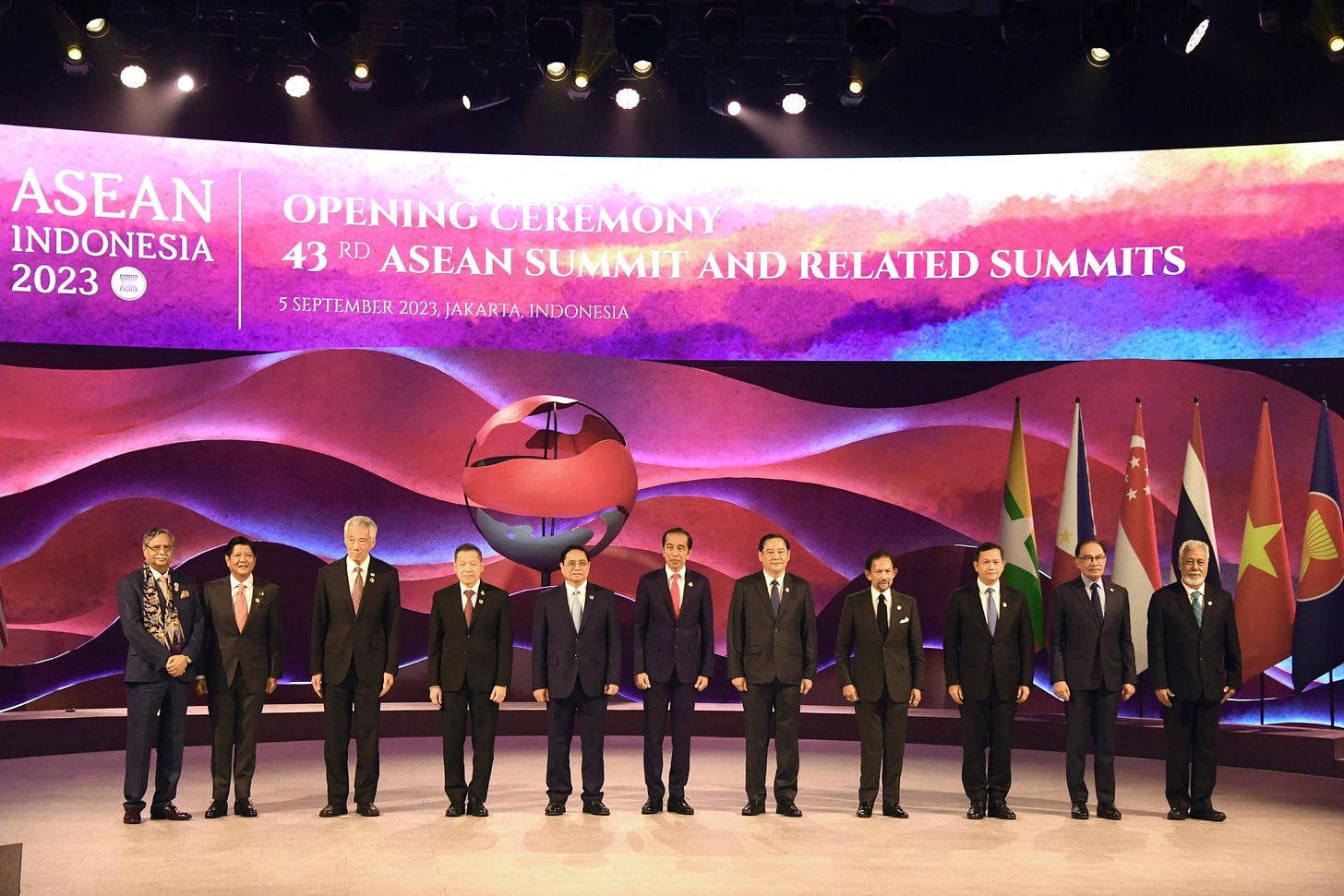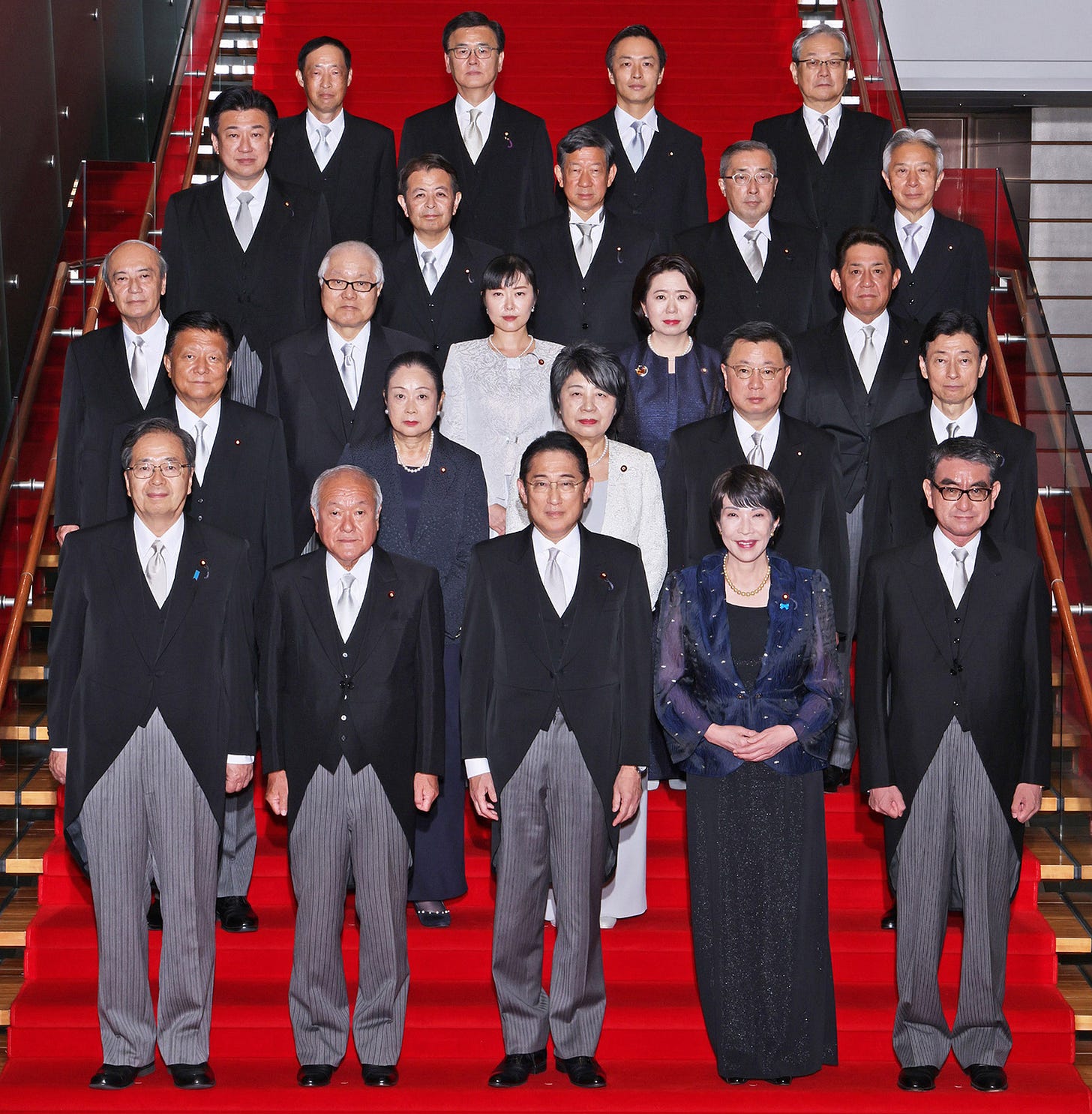Mexico’s Presidential candidates, India’s quota for women and more: All you need to know about women in politics from September
#WomenLead (Issue 143): Your monthly round-up on women in politics
Hello, and welcome to the September 2023 edition of #WomenLead!
We are thinking of Mahsa Amini, a 22-year-old woman who was arrested by the “morality” police in Iran a year ago for not wearing her hijab properly. Her family was told she was being taken to be given “instructions” over how to wear the hijab properly, but two hours later she was being taken to a hospital.
For two days, Amini battled a coma, and on September 16, 2022, she succumbed to injuries and died. The news of Amini’s death sparked widespread protests in Iran where despite great risks to their lives, several women removed their hijab to protest. What followed was an authoritarian crackdown.
A year down the line, the country is bringing in a new harsher hijab law, which has been termed as tantamount to a gender apartheid. What a terrible denial of human rights!
In this month’s edition, we bring you updates from Australia, India, Italy, Japan, Mexico, New Zealand and USA. In case you missed last month’s edition, you can read it here.
Election Watch
Tracking women among candidates and winners
🇲🇽 MEXICO: History will be in making when Mexico holds Presidential elections next year. Both the major political sides have put forth women as their candidates to be the Central American nation’s next President, the Associated Press reported. Earlier in September, Xochitl Galvez was nominated as the candidate by an alliance of opposition parties, and a few days later, Claudia Sheinbaum, a former mayor of Mexico City, was declared the candidate by Morena, the party of current President Andrés Manuel López Obrador’s Morena party.
🇳🇿 NEW ZEALAND: In October, New Zealand will go to polls to elect the next Parliament. In the last election, voters elected one of the most diverse group of legislators. Jacinda Ardern was reelected as the Prime Minister and she selected one of the most representative cabinets in the country’s history. In 2022, women even marginally outnumbered men in the national parliament. Will the exemplary results be repeated this year? The New York Times has a note of caution.
Leaders
Updates about women leading countries, states and movements
When the United Nations’ General Assembly convened earlier this month, only 21 women leaders participated in the assembly’s debate. With only a handful of countries that are led by women, this is not surprising, though very disheartening. Last year, the number was 23.

September was also big on two other international convenings and gatherings. Indonesia hosted the 43rd ASEAN Summit. Then India hosted the G20 with much fanfare. The pictures tell us what was clearly missing across them all:

Image via X (formerly Twitter): ASEAN

Dianne Feinstein, the longest-serving woman member of the Senate in the USA passed away on September 28 at the age of 90. She served for more than three decades in the national legislature, and broke many a glass ceiling throughout her long career. Read more from the 19th News.
On-the-job updates
Spotlighting women’s experiences in political office
Karen Andrews, a former cabinet minister from Australia, shared her very disturbing experiences of being harassed in Parliament. Andrews shared that a male colleague, whom she did not name, would often breathe down her neck while in Parliament. The man would also make crude remarks. Andrews spoke about this in an interview with ABC News. And as is often the case when women seek support and help, Andrews was told why she couldn’t take a joke.
"But do you know what the issue is? Well, there would be people that would say, 'Can't you take a joke? Can she not take a joke?' I mean, really ... and sometimes I do call it out, but sometimes I just go, 'I can't be in every fight’,” Andrews told ABC News.
In Japan, PM Fumio Kishida reshuffled his cabinet and appointed a “historic” high number of women. That’s five women, up from two previously, and matching a previous high of five.

Women politicians in Italy are more likely to face physical or psychological violence than their male counterparts, recently published research has found. The authors look at data on local politicians as well as a database that collates information on attacks on politicians and find women who have won elections on a tight margin were three times more likely to face violence as compared to male politicians. Read more here.
Policy Watch
Because policy shifts matter
It’s been a big month in Indian politics. In a special session of the Parliament, the Indian government introduced the Nari Shakti Vandan Adhiniyam, a bill that would pave the way for reserving one-third of seats for women in the Lok Sabha, the lower house of the Indian Parliament along with state legislature assemblies.
The bill was introduced in Parliament, and became a law soon after it was passed near-unanimously in both houses, and received the President’s assent. First introduced in 1996, the bill remained stuck for nearly three decades before becoming a law in an almost unreal timeline.
With women comprising only 15.2 percent of Lok Sabha members, India currently ranks 141 among 185 countries on this metric. Once the law comes into force, the share of women will go up to 33 percent (the law also provides for reservations for women from the Scheduled Caste and Scheduled Tribe communities). But here’s the catch. When the law will come into force remains a guessing game for now. While the law provides some direction, it does not mention any specific date or year. As such, the end of the decades-long wait has become a case of so-near-yet-so-far. In the meantime, all our eyes will be on what political parties will do in the interim.
🔌 Self-plug: Here’s a little something we wrote on this development for The Indian Express where we try to place this milestone development in India in a global context.
Also read: This Times of India report on Pramila Dandavate, who had tabled the Women’s Reservation Bill in 1996.
Shout-out
A note of gratitude for those tracking gender gaps in politics

We’d like to give a big shout-out to RepresentWomen, a USA-based organisation working on improving women’s political representation. RW champions evidence-based solutions that break down structural barriers to women’s political leadership.
For ten years now, their team has been collating data on women’s representation in elected office at the national, state, and local levels of government in the USA. They use this data to build a Gender Parity Index, where each state is given a score and a grade based on the number of women in office. States can score between 0 points (if no women are in office) and 100 points (if women hold all political positions #YouWish), and 50 represents a point of parity.
Who doesn’t love a great way to use data to advocate for more gender equality? At #WomenLead, we interviewed Courtney Lamendola and Steph Scaglia, members of the RepresentWomen team who worked on putting together the report. They took us #BehindTheScenes of the index.
Read the full interview here:
Reading List
The more one learns, there’s only more to learn
“Women and political leadership ahead of the 2024 US election”: Pew Research Center
“Sex, lies and social media: Women face tough fight in African politics”: AFP
“As Iraq backslides on gender equality, where are its women MPs?”: Al Jazeera
“‘Gender equality is not an option, but an imperative’ – Women leaders gather at UN summit”: UN Women
“Women’s voices are being stifled by political inaction”: The National
“How Nigeria’s youngest female lawmaker is coping”: Vanguard
That’s a wrap for September! Liked this edition? Then press the ❤️ button and show us some love! And please, please do share this with a friend or on your social media accounts. There’s frankly nothing quite like reader love and endorsement, so please keep it coming! Thank you!
Disclaimer: #WomenLead is a non-partisan newsletter produced in a personal capacity, and does not reflect any institutional affiliation/opinion. In case of any questions, please drop in a message at womenlead.project@gmail.com




